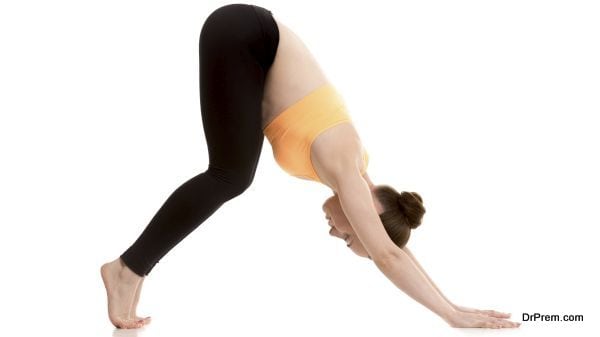They say too much of a good thing is bad. Did you know that this holds true for exercise, too? That’s not to say you should grab the remote and become a professional couch potato. But it does mean giving your body the rest it needs. Overworking muscle groups won’t make them bigger or better. It’ll just make you tired and weaker. If you’re experiencing sore muscles or are simply looking to make the most out of your rest days, this article can help. Keep reading to discover five expert tips on promoting muscle recovery (and why it’s important).
1. Use Active Recovery

If you’re one of those people who can’t bear the thought of a day without exercise, active recovery is the answer. In fact, active recovery is the best way to both heal and keep your muscles stimulate on rest days. This is your chance to take that yoga class you’ve been wanting to try or enjoying a nice walk or hike. Active recovery is a great way to increase blood flow and help move nutrients throughout our body — two things your muscles need to perform best. If you’re accustomed to high-intensity workouts, try some of these crossfit body recovery tips. Other low intensity exercises include swimming and pilates.
2. Get Plenty of Sleep
 One of your favorite things to do on a rest day might be just that — rest! And here’s proof that getting plenty of sleep is exactly what your muscles need to recover. Without adequate sleep, your body can’t function at optimum levels. And contrary to popular belief, sleeping for an extra 2-3 hours one night won’t make-up for lack of sleep the night before. You’ll find yourself in a vicious cycle of trying to catch up on rest. But simply taking a nap on your rest day won’t cut it either. You need to get 7-8 hours of quality sleep each night to let your muscles, body, and mind recover completely.
One of your favorite things to do on a rest day might be just that — rest! And here’s proof that getting plenty of sleep is exactly what your muscles need to recover. Without adequate sleep, your body can’t function at optimum levels. And contrary to popular belief, sleeping for an extra 2-3 hours one night won’t make-up for lack of sleep the night before. You’ll find yourself in a vicious cycle of trying to catch up on rest. But simply taking a nap on your rest day won’t cut it either. You need to get 7-8 hours of quality sleep each night to let your muscles, body, and mind recover completely.
3. Fuel Before and After Your Workout

Fueling your body both before and after you exercise helps give your muscles the nutrients they need to stay healthy. Protein is the foundation of any good workout program and is the building block of muscle growth and repair. Protein shakes and bars are great for a quick, on-the-go snack before and after your workout. But don’t rely solely on these products as your protein source. Fresh fish, lean meats, eggs, and whole grains are packed with protein and other antioxidants. If you want to get the most out of your workouts and your recovery, don’t neglect your daily protein consumption.
4. Stretch and Roll
 Stretching is essential for maintaining healthy, flexible muscles. It also prevents injury. But don’t reserve stretching for immediately before and after exercise. You can stretch on your rest days too (and should). Foam rolling is another great way to help loosen tight, sore muscles. The pressure from a foam roller helps reduce inflammation, improve circulation, and break up knots and scar tissue.
Stretching is essential for maintaining healthy, flexible muscles. It also prevents injury. But don’t reserve stretching for immediately before and after exercise. You can stretch on your rest days too (and should). Foam rolling is another great way to help loosen tight, sore muscles. The pressure from a foam roller helps reduce inflammation, improve circulation, and break up knots and scar tissue.
5. Hydrate
 Hydration is important before, during, and after workouts. Water is an essential part of the body. Regardless of your fitness or activity level, you need to hydrate your body. This helps combat dehydration, which can lead to muscle spasms and cramps. Water also keeps your joints and muscles lubricated, preventing muscle fatigue. Sports drinks contain electrolytes which help muscles contract. Avoid any drinks too high in sugar.
Hydration is important before, during, and after workouts. Water is an essential part of the body. Regardless of your fitness or activity level, you need to hydrate your body. This helps combat dehydration, which can lead to muscle spasms and cramps. Water also keeps your joints and muscles lubricated, preventing muscle fatigue. Sports drinks contain electrolytes which help muscles contract. Avoid any drinks too high in sugar.
The way you recover your muscles is just as important as how hard you work them. Without proper rest, you can’t perform at your best and are more susceptible to injury. Take the time your body needs to recover before tackling another intense workout.
Article Submitted By Community Writer




